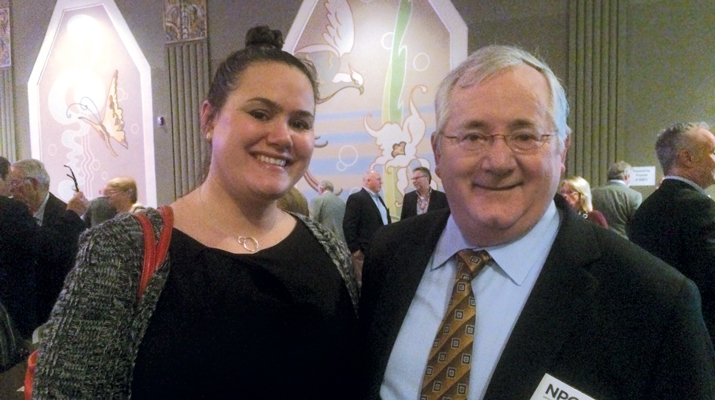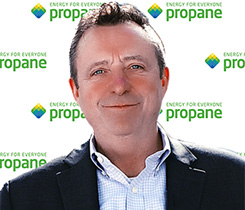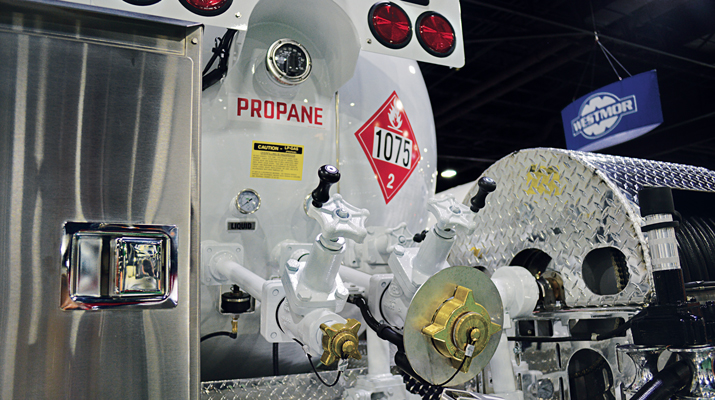Propane marketing in a ‘blink’
In his latest book “blink,” author Malcolm Gladwell (also author of “The Tipping Point”) examines how people make snap judgments. He is fascinated by how, in many circumstances, the snap decisions are better than those using more analysis and information.
 Carl Hughes LP/Gas Magazine Columnist |
As an example, he reviews a well-known forgery of a first-century statue. Exhaustive scientific evidence and research proved the statue was authentic. Yet one expert, on his first glance at the statue, declared it was a fake. This art expert could not explain why, for some time, he just knew it did not look right. This snap judgment turned out to be correct.
In this type of snap decision-making, Gladwell demonstrates that experts with deep experience often make good judgments with a thin slice of information. They can, in fact, make worse decisions with too much information and analysis.
In another well-analyzed historic event, Gladwell summarizes Robert E. Lee’s famous rout of Joseph Hooker’s superior army in the Battle of Chancellorsville. Hooker had vastly superior forces and the better initial battle position. As all experts on these matters will tell you, once a battle is under way, the situation is perfect chaos. The battle was won on Lee’s unique ability to act spontaneously. He divided his army twice, caught Hooker completely off guard and forced a Union army retreat. One of Lee’s genius traits was to act spontaneously — and very successfully.
On a more everyday level, Gladwell reveals that we all possess the ability to successfully act instinctively because our subconscious processes data so fast that we are unaware it is taking place. While some of our first impressions are solid, not all snap decisions are good ones. More often, more information and study improves decision-making. The important point for us is we all make snap judgments.
What snap judgments mean for our retail propane businesses
The good news from this is that customers and prospective customers continually make snap judgments about our businesses, and we can influence their judgments and choices. The bad news is they may be making wrong judgments about our companies.
Let’s assume that our well-run propane company has allowed the grass to grow just a little too long at our publicly served office — just enough to be noticeable by the public. Let’s further assume that a prospective customer drives by and makes an impulsive judgment to call another company first, simply because he judged our entire ability to meet his needs on our long grass.
We would all agree that in this circumstance this prospective customer is wrong in his judgment of our company. The appearance of overgrown grass does not mean you do not run a safe, responsive company with highly trained, caring employees. While we would all be right in our point, reality is it doesn’t matter if he is wrong about his judgment of your service and your company.
Our biggest marketing mistake
Herein lies the problem. We expect our customers to understand all of the hard work we do to serve them. We expect them to see the rigorous training we put all employees through. We expect prospects to know our trucks are well maintained and you have not had a Department of Transportation violation in years.
The key message for us in “blink” is that our expectations for the public to truly know us are unreal. Many of our customers and certainly our prospects have no sensory access to the many things we do well. It is therefore unrealistic to expect them to give us the fair ranking we want if we don’t pay attention to what data we provide them to make the judgment.
Gladwell offers more advice, in that we should be forgiving to those who make wrong snap judgments without more information. He says snap judgments are part of our human makeup. He suggests we further err when we blame the perceiver for making these judgments. The responsibility lies in the system that allows for the snap judgment to be wrong.
It is our responsibility to have our grass cut if we understand and expect our businesses are being judged with just a blink.
Carl Hughes is vice president of business development for Inergy LP. He can be reached at
Chughes@InergyServices.com
or 816-842-8181.
















